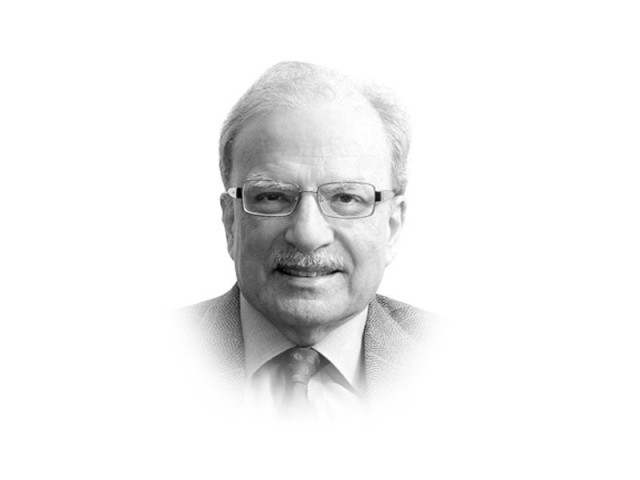Regionalism in South Asia
With the launch of the Zarb-e-Azb operation in North Waziristan, Pakistan may have taken a step in the right direction

The writer is a former caretaker finance minister and served as vice-president at the World Bank
India-Bhutan relations have significant economic benefits for both countries. Not only that they could become the basis of cooperation among the several nations of South Asia who have often been at odds with one another. Bhutan-India economic cooperation is an example of what the new prime minister expected to gain from other regional contacts. In collaboration with India, the tiny Himalayan Kingdom aims to generate up to 10,000 megawatts of power in the next seven years, up from 1,500 megawatts it now produces. Most if it is exported to India.
It is not inconceivable that this kind of collaboration could become the basis of a multi-country electricity grid system and gas and oil pipelines that would connect all countries of South Asia as well as Central Asia. Such a system could supply various forms of energy from the energy surplus countries in the region to those that — like India and Pakistan — have large deficits. Such an arrangement would help Afghanistan meet a significant part of its resource needs. The American pull out is likely to result in large declines in external capital flows to the country. This loss could be compensated by the country charging transit fees for the flow of energy to Pakistan and India.
What Prime Minister Modi is saying fits well into what can be called the Obama Doctrine. This was spelled out at some length by the American president in an address on May 28 at the West Point Military Academy. He said that in a rapidly changing world no single country has the might or the right to dictate to other nations. The relevance of the Obama Doctrine becomes obvious when the future of South and Central Asia is viewed in the context of regional cooperation. By eschewing the use of military force to exert its influence on the world, President Obama has laid the ground for using economics to accommodate the rising China. The doctrine’s application to Asia will provide comfort to Beijing that its economic rise is not being ‘contained’ in the sense the approach was used in the days of the Cold War with reference to the Soviet Union.
Whether Prime Minister Modi is consciously framing his approach to his country’s neighbours in the same context as the Obama Doctrine is not the issue. What is important to recognise is that the new world’s two great powers are on the same page in dealing with external relations. If India under Modi makes the adjustments that seem to be the way the country’s new prime minister is proceeding, other countries in the region will need to make their own changes. With the launch of the Zarb-e-Azb operation in North Waziristan, Pakistan may have taken a step in the right direction. As the novelist Mohammad Hanif put it, Pakistan had turned the tribal agency into a ‘terrorist resort’. It has harboured people who have inflicted damage in all the countries Pakistan borders. Afghanistan, China, India and Iran have all suffered at the hands of the terrorists who have launched operations from Pakistani soil. If words can be trusted as intentions, Pakistan’s prime minister appears to share the same belief in using economics to improve the citizen’s welfare. By moving to destroy terrorist havens, he may also be creating the environment which will finally bring about economic integration in the South Asian region.
Published in The Express Tribune, June 23rd, 2014.
Like Opinion & Editorial on Facebook, follow @ETOpEd on Twitter to receive all updates on all our daily pieces.













COMMENTS
Comments are moderated and generally will be posted if they are on-topic and not abusive.
For more information, please see our Comments FAQ